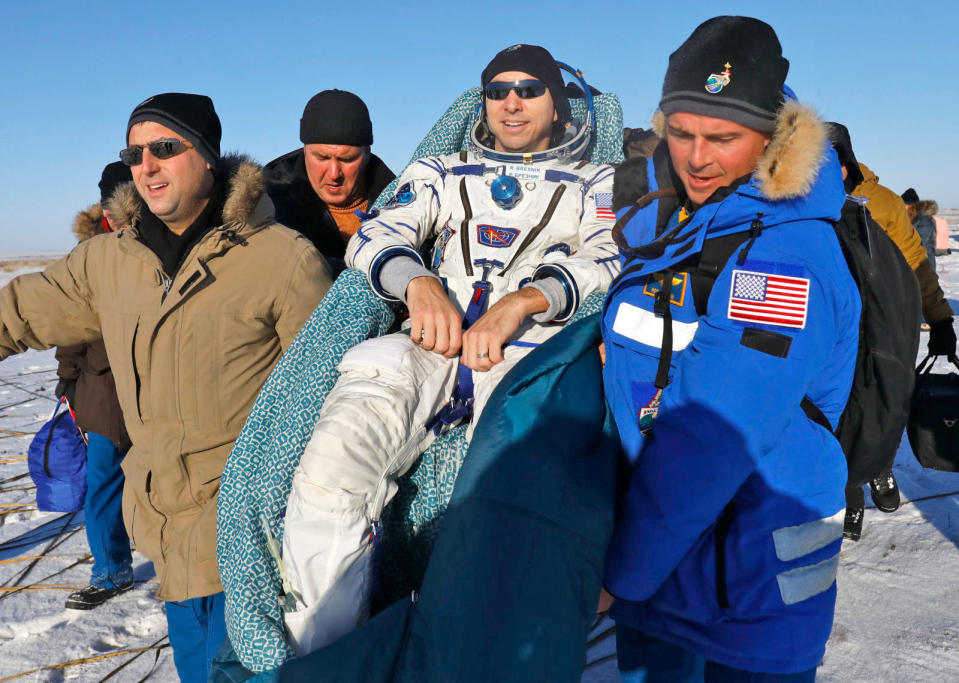NASA tests treatment that could slow astronauts’ muscle loss
It’s an implanted device that delivers medication on its own.
Even though astronauts exercise everyday while they're aboard the International Space Station (ISS), they still experience a fairly significant loss of muscle mass. So much so that they require physiotherapy once they return to Earth. However, researchers with the Houston Methodist Research Institute and the Novartis Institute for Biomedical Research are testing a device that can continuously administer a medicine that may help prevent muscle deterioration, Seeker reports. The team sent 40 mice to the ISS in December, some with devices that deliver the drug and some with devices that just deliver an inactive solution. Half returned to Earth in January and the other half will do so this month.
The device is an implanted nanochannel delivery system that can administer the medicine automatically on its own. And the drug is formoterol, a medication that relaxes muscles and is used to treat asthma and chronic obstructive pulmonary disease. The researchers are evaluating how the device and the drug work on muscle loss in the mice and while astronauts stand to benefit from this type of treatment, so do people on Earth. Those with diseases that keep them immobile for months also experience significant muscle deterioration and would benefit from a drug that could help slow or prevent that loss. Additionally, the device could administer other types of drugs such as HIV treatments that must be taken regularly without interruption.
The device isn't yet approved by the FDA, so it will be some time before it can be tested on humans. But as we gear up to crewed missions to Mars, which will require astronauts to live in microgravity for far longer periods of time than those who work on the ISS, a muscle-loss intervention will be required. And one like this that astronauts won't have to administer themselves and can last for months on end seems to be an ideal solution.
The research team is also working on a version of the device that can be controlled remotely. It's scheduled to be tested on the ISS sometime next year.



